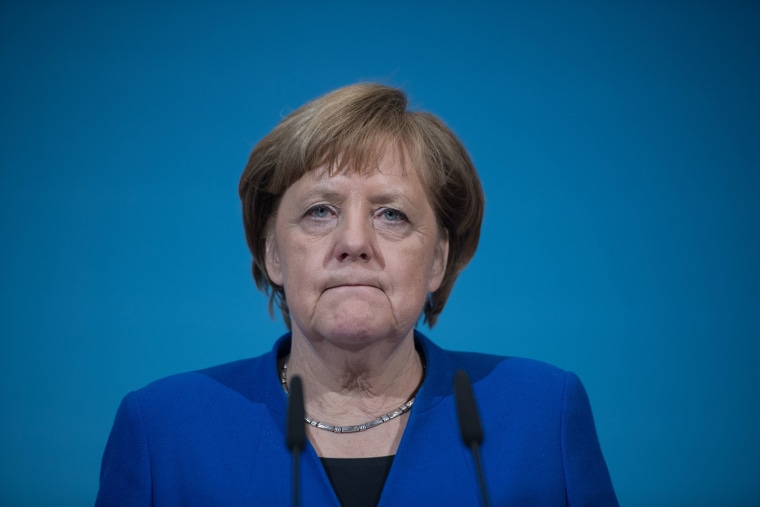Chancellor Angela Merkel struck a deal with rivals Friday to open government coalition talks, easing months of uncertainty that has undermined Germany's global role and raised questions about her political future.
Weakened by an election setback in September, she turned to the left-leaning Social Democrats (SPD) to revive their "grand coalition" after the collapse in November of separate talks with other parties.
But the deal must be approved by SPD party members at a congress planned for January 21. Some fear further association with Merkel's chancellorship could erode the influence of their party, which suffered the worst result in September's election since the modern Federal Republic was founded in 1949.
"We have felt since the elections that the world will not wait for us,” Merkel, who has played a central role in tackling crises over the euro and refugees, told journalists after talks that had run through the night.
A 28-page blueprint pledged close co-operation with France to strengthen the euro zone. It also contained a promise, apparently targeting Saudi Arabia, a major buyer of German arms, not to export arms to countries involved in the war in Yemen.
Related: With Germany in crisis, Europe ponders life without Merkel
Germany is unfamiliar with the long negotiations that mark coalition-building in many neighboring countries. The dominance of the SPD and the conservatives long ensured smooth government transition. But elections last September saw the rise of the right-wing Alternative for Germany which upset the arithmetic.
Merkel was eager to avoid any repeat elections or attempt at a minority government.
"There will be difficult tasks to come," Merkel said. "The coalition negotiations probably won't be easier than the exploratory talks."
As Europe's largest economy and pre-eminent power broker, Germany is crucial to the region's fortunes. Berlin's partners are eagerly awaiting a new government to help drive forward Brexit talks, euro zone reform and EU diplomatic initiatives.
European Commission President Jean-Claude Juncker, speaking in Sofia, described the deal as a huge benefit for Europe.
